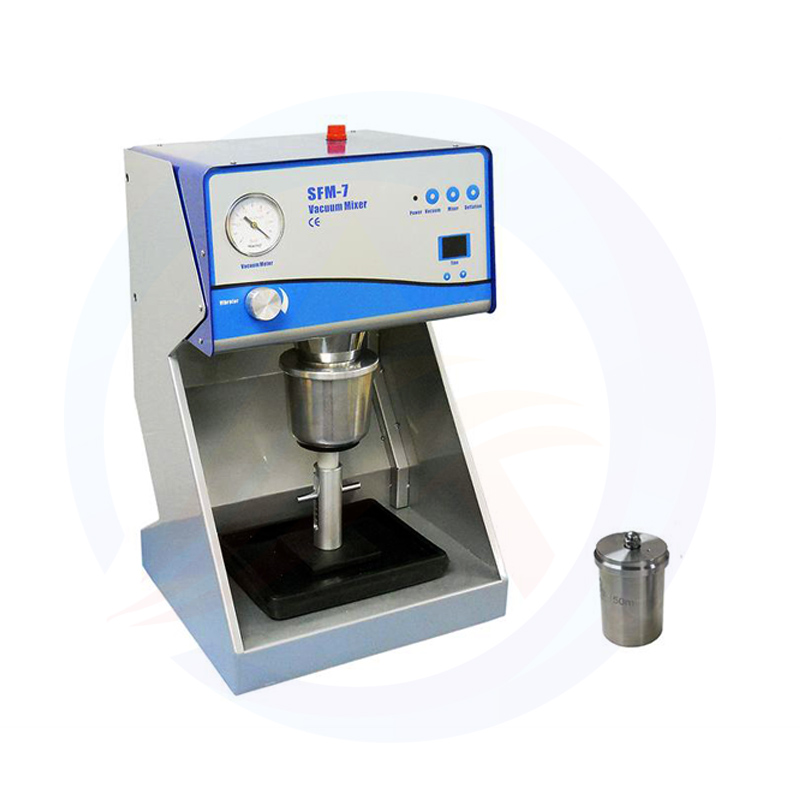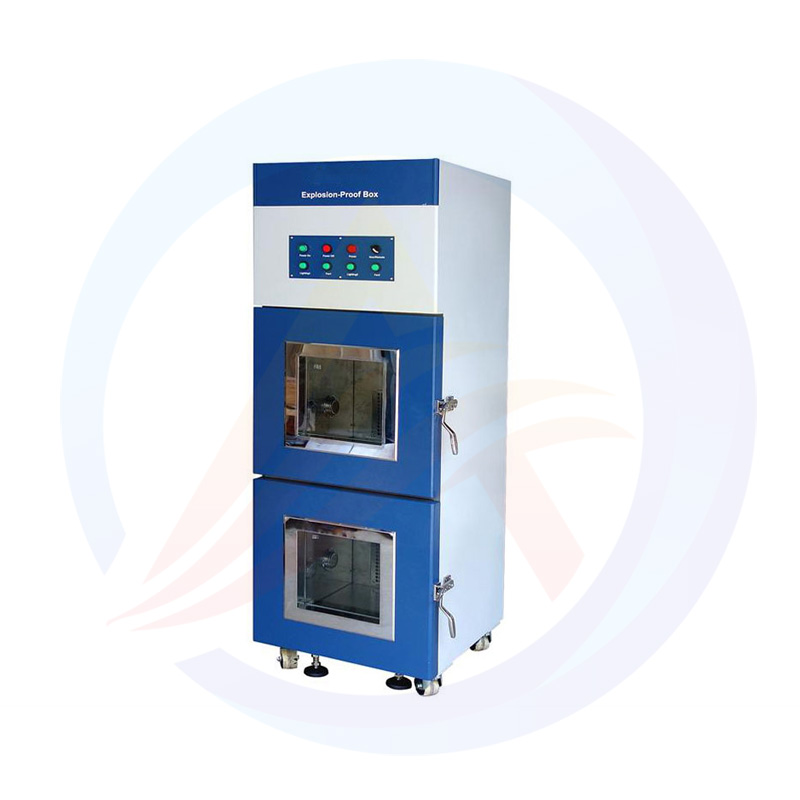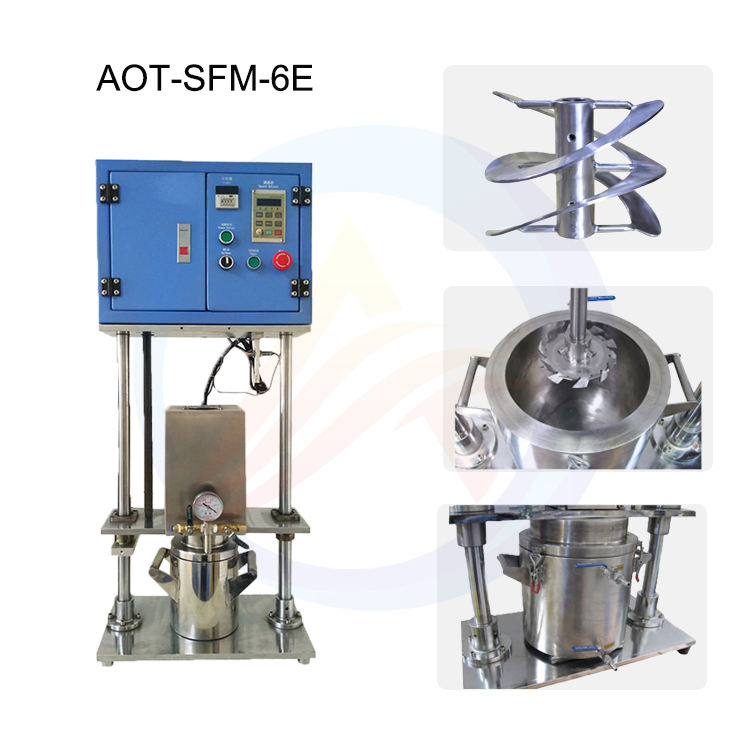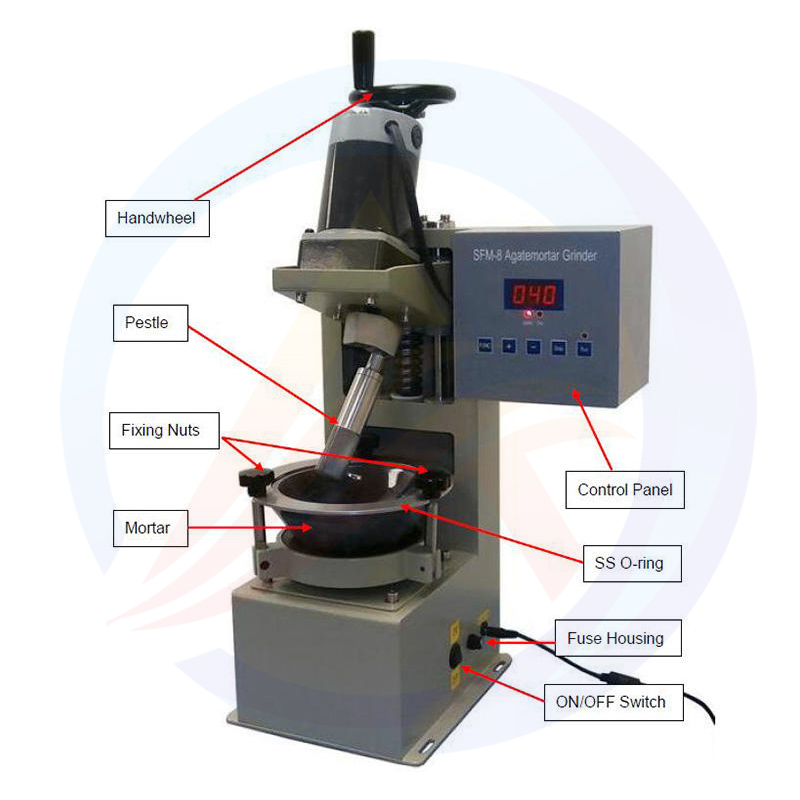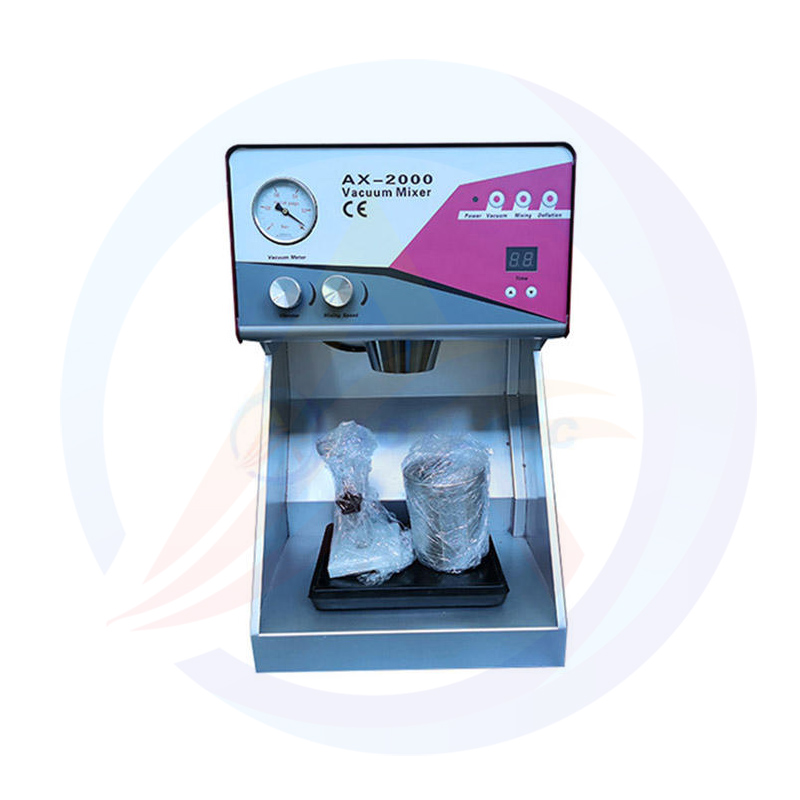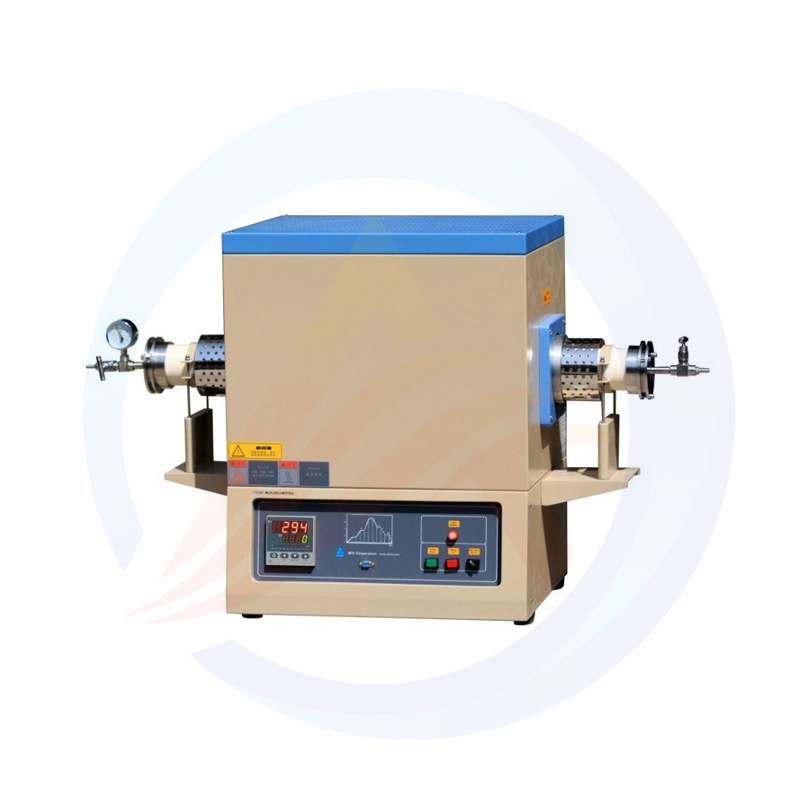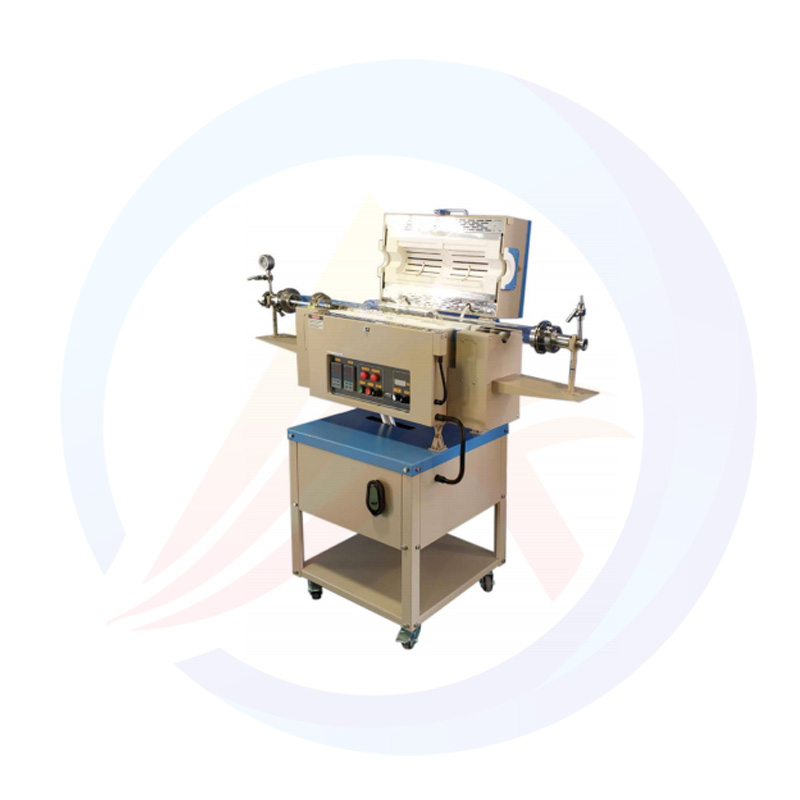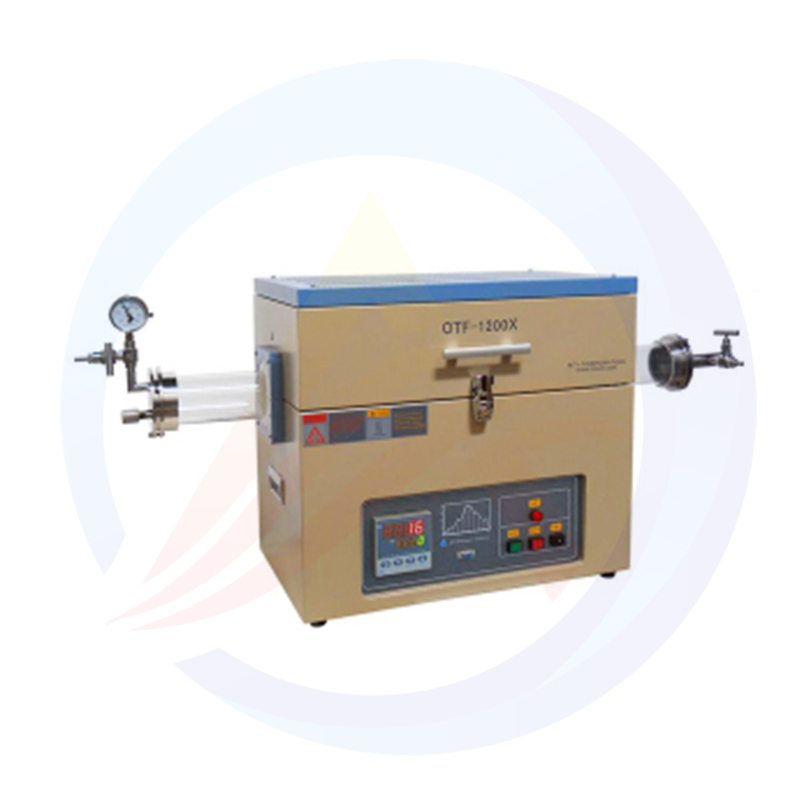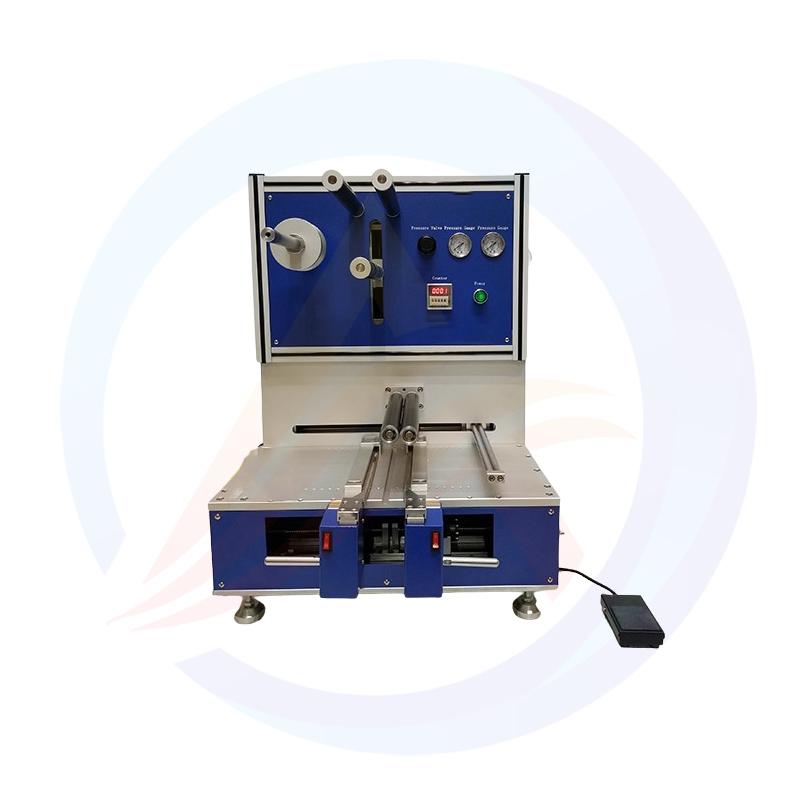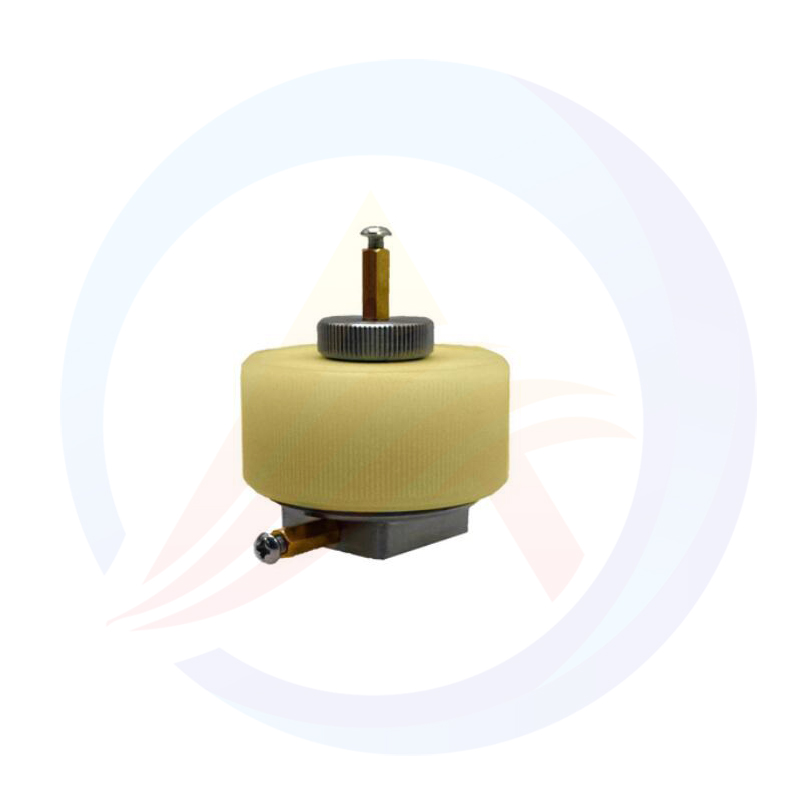Lithium-ion Battery Vacuum Mixing Machine
The Lithium-ion Vacuum Mixer is a specialized piece of equipment utilized in the production process of lithium-ion batteries. It combines the functionalities of mixing and vacuuming within a single unit, tailored to meet the unique requirements of battery material handling.
This advanced mixer operates under vacuum conditions, ensuring that the lithium-ion battery materials are mixed in an environment free from contaminants such as moisture and oxygen. The vacuum environment plays a crucial role in maintaining the purity and quality of the battery materials, which is essential for enhancing the performance and lifespan of the final battery product.
The mixer itself is equipped with high-precision stirring mechanisms that ensure uniform and thorough mixing of the battery materials. The stirring mechanisms are designed to handle a wide range of viscosities and particle sizes, accommodating various types of electrode materials, binders, and solvents used in lithium-ion battery production.
In addition to its mixing capabilities, the Lithium-ion Vacuum Mixer also features advanced control systems that allow for precise monitoring and adjustment of the mixing process. These control systems enable operators to optimize the mixing parameters such as speed, temperature, and vacuum level, ensuring that the battery materials are mixed to the exact specifications required for high-performance lithium-ion batteries.
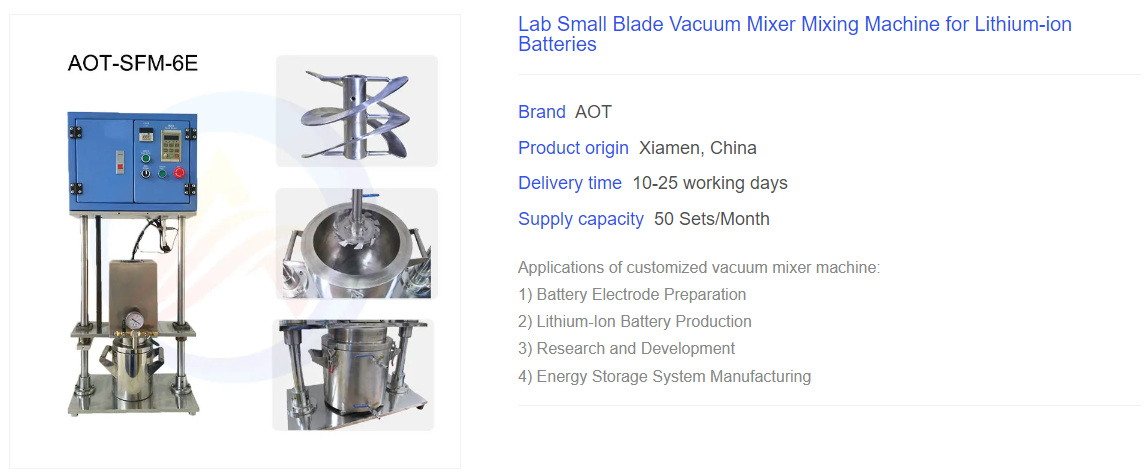
The Lithium-ion Vacuum Mixer finds diverse applications across various industries, particularly in those involving the production and processing of lithium-ion batteries.
Battery Material Preparation:
In the production of lithium-ion batteries, the Lithium-ion Vacuum Mixer is indispensable for preparing battery materials. It ensures that active materials, conductive agents, binders, and other components are uniformly mixed, which is crucial for the performance and safety of the final battery product.
Electrolyte Preparation:
The mixer is also used in the preparation of electrolytes for lithium-ion batteries. By mixing solvents, solutes, and additives under vacuum conditions, it ensures the uniformity and stability of the electrolyte, thereby enhancing battery performance.
Research and Development:
In research and development laboratories focused on lithium-ion batteries, the Lithium-ion Vacuum Mixer is a valuable tool. It allows researchers to precisely control the mixing process, enabling them to explore new material formulations and manufacturing processes.
Chemical and Materials Industry:
Beyond the battery industry, the mixer is also applied in the chemical and materials industry. It can be used for mixing, reacting, dispersing, and dissolving various chemical raw materials, especially those with high viscosity and complexity. The vacuum environment helps to eliminate bubbles and improve product quality.
Electronic Materials Production:
In the production of electronic materials, such as those used in LEDs, LCDs, medical devices, and electronic components, the Lithium-ion Vacuum Mixer plays a crucial role. It ensures that high-precision materials like fluorescent powder, silicone, silver paste, aluminum paste, adhesives, and inks are uniformly mixed without layer separation.
Pharmaceutical Industry:
Although less common, the mixer can also be used in the pharmaceutical industry for mixing, reacting, dispersing, dissolving, homogenizing, and emulsifying pharmaceutical raw materials. The vacuum environment helps to prevent contamination and improve product purity and uniformity.
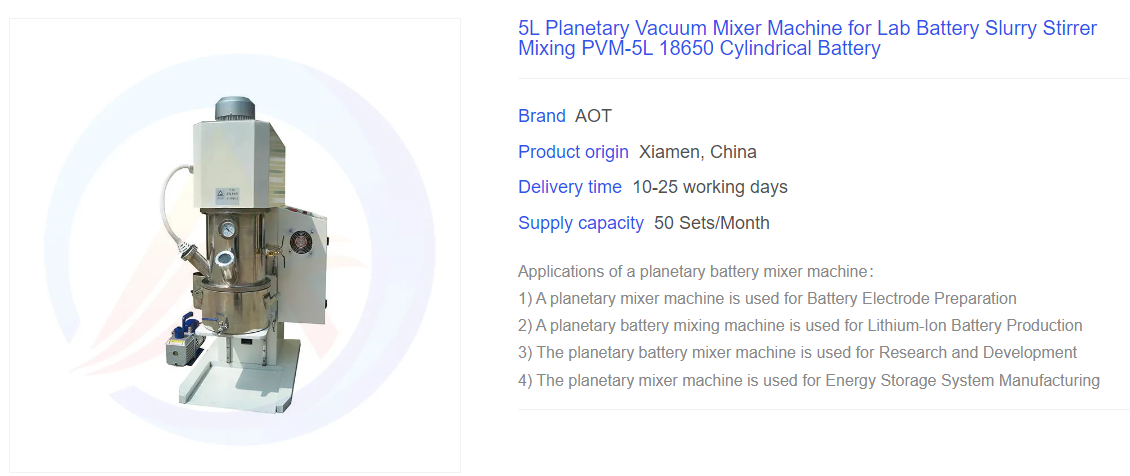
The Lithium-ion Vacuum Mixer boasts a range of advantages and characteristics that make it an indispensable tool in the production of lithium-ion batteries and other related industries. Here are some key points highlighting its superiorities and features:
High Mixing Efficiency:
The mixer is equipped with high-speed dispersion components and low-speed stirring components, which work together to achieve efficient mixing. The high-speed dispersion components create intense shear forces, while the low-speed stirring components ensure uniform distribution of materials. This combination results in excellent mixing efficiency and quality.
Uniformity and Consistency:
The unique design of the mixing blades and the stirring mechanism ensures that materials are uniformly mixed, resulting in a consistent battery paste with small particle size and high uniformity. This is crucial for ensuring the performance and reliability of lithium-ion batteries.
Vacuum Environment:
Operating under vacuum conditions, the mixer eliminates the risk of contamination from air and moisture. This ensures the purity and quality of the battery materials, which is essential for producing high-performance batteries.
Low Noise and Wear:
The mixer is precision-assembled with low-noise components, resulting in minimal noise during operation. Additionally, the components are highly wear-resistant, reducing maintenance costs and extending the lifespan of the equipment.
High Sealing Performance:
The mixer features a high-seal design that can withstand pressures up to 1.5 BarA. This ensures that the vacuum is maintained during the mixing process, preventing any leakage or contamination.
Easy to Clean and Maintain:
The surface of the mixer is polished to a high degree (Ra0.32 or above), and the dispersion and stirring components are designed with a quick-release structure, making it easy to clean and maintain. This reduces downtime and increases the overall efficiency of the production process.
Customization Options:
The mixer can be customized according to the specific requirements of the manufacturer. This includes options for different capacities, mixing speeds, and configurations to suit various production processes and material types.
High Integration and Automation:
The mixer is highly integrated, with seamless connections between pre-mixing, mixing, transfer, and filtration processes. It is fully automated, reducing human intervention and improving production efficiency.
In summary, the Lithium-ion Vacuum Mixer offers numerous advantages and characteristics that make it an ideal choice for producing high-quality lithium-ion batteries and other related products. Its high mixing efficiency, uniformity and consistency, vacuum environment, low noise and wear, high sealing performance, easy cleaning and maintenance, customization options, and high integration and automation make it a valuable asset in the battery manufacturing industry.

